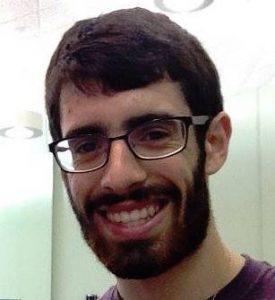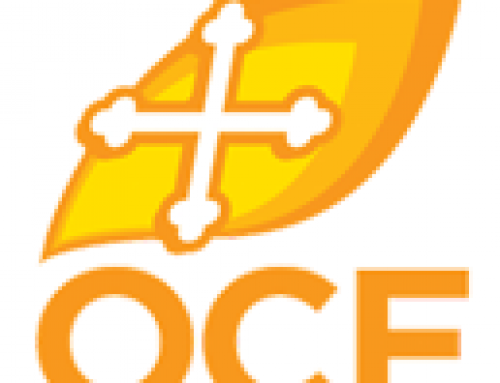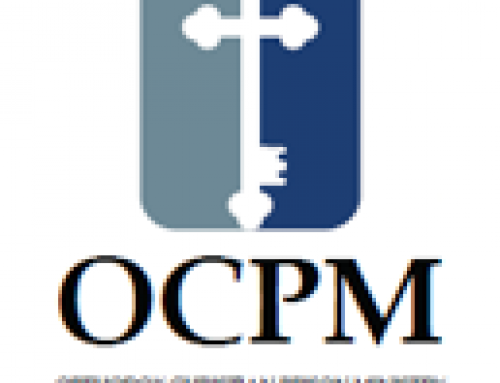This post was originally published on this site
For a moment, imagine yourself back at summer camp. (If you’ve never been to an Orthodox summer camp, try to imagine it.) You are with your close camp friends, spending your days going to daily church services, learning about Orthodoxy, playing sports, and just having the time of your life. In all likelihood, you are the closest to the best version of yourself that you have ever come. And a substantial part of you wishes you would never end.
Why does it happen this way? Why do we respond this way to a life that sounds like it would just make people miserable: living in cabins in the woods with bugs crawling through your stuff, usually not in air conditioning, standing through almost two hours of church a day, and spending a significant portion of the day basically back at school? It’s because when you take the complications of life away and get nothing but essentially raw exposure to Orthodoxy, you subtly take in all of the lessons that surround you. Just by living in that environment, you are constantly taking in “lessons” of Orthodoxy, and it translates into how you live your life.
Now let’s imagine that camp was longer; say, four months. You have a little more freedom: you control your own schedule, although there are things that you do need to be at. Oh, and one more thing: let’s pretend that instead of being at an Orthodox camp, it’s not an Orthodox environment. Instead of having Orthodox teachings around you all the time, you are surrounded by ideas contrary to the Orthodox faith. Or worse, you are surrounded by new ideas and new advice as to how to live your life, some good and some bad, and you can’t tell which is which. You need to make changes to adapt to the new environment, but you can’t tell what changes would be beneficial and which would be harmful.
Instead of subtly changing in ways that bring you closer to God, how will you change now? How will the ideas scattered across your surroundings have an impact on your moral or religious beliefs? How will you tell if what’s going on around you is wrong, or if it’s just different?
Let’s add one more thing to this hypothetical: in terms of your faith, you are alone. You have nobody around you, no one to encourage you in the faith. You just have a new lifestyle presented in front of you, a lot of which seems great, and nothing to ground you to the values of Orthodoxy. Would you be able to stay strong through your Faith through this whole experience? I’ll be honest, I’m not sure if I would.
Or instead, let’s imagine that you have a great Orthodox support system around you. You have friends nearby who are Orthodox, who you at least get to see a few times a week. In fact, you all meet weekly with a priest to have a discussion. There is a church nearby that you attend at least weekly, and you try to go to other services whenever you can. You keep in touch with all of the Orthodox friends that you know from all over the place, and you talk about your joys and your struggles with each other as they relate to Orthodoxy: how difficult it is to fast at school, how excited you are for Pascha, how you are going to get to the regional retreat, strategies for how to consistently pray every day, and so on. How does that change things?
The reality is, when we go back to school–this four- or five-month academic, secular summer camp–it’s our choice whether we go into it together or alone. We can choose not to stay anchored to Christ: not find a church, not find Orthodox people nearby, not look into an OCF chapter at your school, not attend regional retreats, not take advantage of the numerous spiritual resources available to us electronically.
Or we can choose to be a community: always praying, going to church, attending OCF meetings and discussions, keeping close contact with Orthodox friends from anywhere, listening to podcasts, watching Orthodox videos, reading Orthodox articles. Even if your school does not have an OCF, you can still work to build one, connect to Orthodox people around you, and attend a nearby church. As my spiritual father once asked, in this modern age of technology, what excuse do we have not to be saints? If you have no idea where to start on all this, talk to your regional leader.
The reality is, when we go back to school…it’s our choice whether we go it together or alone.
– Tweet this!
That is why I am doing this. My name is Paul Murray, and I am a Blog Contributor for OCF this academic year. I will be writing for the website every month to help encourage you (and myself) to live an Orthodox life in an environment that resists it. I love learning more about Orthodoxy and I get very excited about many things related to it, so I’m here to share those things with you. And in this way we grow together, as one body.
May we remember going forward that we are never alone, that there are people all around us (and above all, God) who are just waiting for us to turn and ask for help. May we never give up on our struggle towards theosis and turn to others when we need to. May we focus on our spiritual lives, knowing that if we become holy people, then the environment around us turns just a little bit more Orthodox, and maybe you can bring that subtle change that camp brought to you, to those around you.
My prayer is that God will give us all the strength to do these things.
See you next month.
Paul Murray is a senior psychology major and Spanish minor at Franklin & Marshall College, and he attends Annunciation Greek Orthodox Church in Lancaster, PA. His home parish is St. George Antiochian Orthodox Church in New Kensington, PA, and he has spent the past three summers serving as a counselor at the Greek Orthodox Metropolis of Pittsburgh Summer Camp and the Antiochian Village. In his free time, Paul ties prayer ropes and writes descriptions of himself in the third person for blog articles.




